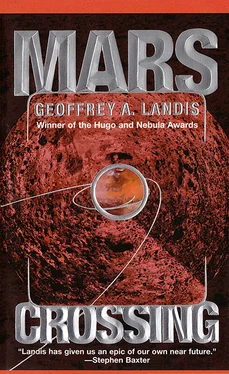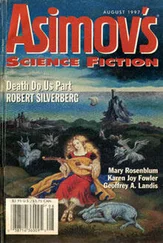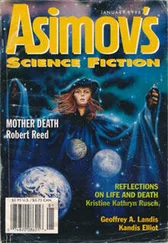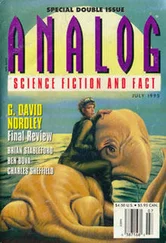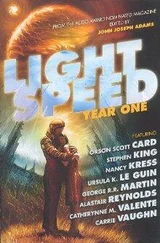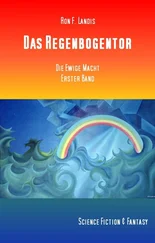One hundred and forty kilograms.
Now they knew.
Only two of them were going back.
In his own little social world, Ryan was boisterous, talkative, and outgoing. Outside of the nearly vanished circle of the Minions, though, the guidance counselors labeled him withdrawn and introverted. He hadn’t paid any attention to the tall, talkative girl who chanced to sit near him in the cafeteria whenever he came down for a meal, not even when she began to talk to him, and slowly but patiently drew him out. It didn’t occur to him that she might be interested in more than a lunchtime companionship until she invited him to her dorm room, closed the door, put a Nirvana CD to play on her stereo, and started to take off his clothes. “It was the only way I could get your attention,” she told him.
Kaitlyn was, he discovered, the smartest person he had ever met, and he was eternally baffled by what it was she saw in him. Sex, to her, was playful. They would take her Toyota Corolla on long weekends up to Maine, and they would take an old logging road far into the woods and camp, making love far into the night. “Let’s try something new,” was her catch-all phrase. Or they would tryst on one of the rooftops of the Institute, the altitude and the fear of somebody coming across them adding to the thrill of sex.
One summer they spent in urban spelunking. She showed up in his dorm room one day with two flashlights and a crowbar. The game was, find a manhole and see what was underneath it. Sometimes it was nothing. Sometimes it led to tunnels and pipes that seemed to go everywhere in Cambridge. “Hmm, guess you’re not claustrophobic,” Kaitlyn had said the first time he got stuck and had to wait in the dark while she went to fetch a block and tackle to pull him out. “You should be an astronaut.”
She was the first girl he ever fell in love with. A week after they both graduated—he in computer science, she in mathematics—Kaitlyn asked him to marry her. He hadn’t even told his parents yet—he was going to spring it on them when he went back home for the American Thanksgiving holiday when a pickup truck sideswiped her going around a curve, and her Corolla fishtailed and hit a lamppost.
It was hard for him to believe that she was really dead. For years afterward he would wake up with some thought in his head, and think, I’ll have to remember that to tell Kaitlyn.
It took him a long time to get over her. He moved back to Toronto and got a job working on software for an aerospace company. Eventually a quiet, patient girl named Sarah, who he kept running into at work, broke through his reserve and attracted his attention. She worked as a temp, adept at filling in at secretarial jobs when the company was shorthanded, but her real avocation was viola, which she played in a chamber orchestra in Toronto.
He had never heard a chamber music concert, he finally had to admit to her. He wasn’t really quite sure what kind of music it was. “Well, I guess I’ll just have to show you,” she told him.
And from then, his weekends were filled with music. Sarah was both patient and had a sense of humor; her musical tastes ran from Beethoven to Weird Al, and she was fond of pointing out little things to him. “Listen there. That’s a cowbell,” she might say, or, “See what you think of this, it’s written for glass harmonica. You play it by rubbing your finger on wine glasses.”
He got accustomed to her company, and when she went out of town for a performance, he missed her, and hung around his apartment, not knowing what to do with himself.
They were tentatively beginning to talk about making a commitment for life. The only thing was that Sarah was always so tired. She barely had the energy to go to her concerts. She looked pale.
She hadn’t always been so tired. When she first started to chat to Ryan over lunchtime, over breaks at work, she had been full of energy. “She’s a real 240-volt live wire,” was how the other engineer in his office described her. Now she could barely make it from breakfast to lunch.
Ryan took her to a doctor.
The doctor ordered tests. When the tests came back, he wouldn’t talk about them, but ordered more tests, and a CAT scan. When the new tests were completed, a new doctor came to talk about them, a specialist.
It was cancer: in her liver and her pancreas, and beginning to spread. The cancer was aggressive and inoperable. The day before Easter, he brought a minister and a wedding license to the hospital, and they were married. Three days later she was dead.
Twice was enough. He went back to school for three more degrees, one in astronautical engineering and two in computer science, and decided that from then on he would stick to his studies, and would never curse another woman by becoming too close to her.
Butterfly didn’t look like anything, least of all like an airplane. It was a pile of thin, transparent foil.
The Martian atmosphere is more than a hundred times thinner than the Earth’s atmosphere. Even with the low gravity of Mars, flying in the thin air of Mars is a challenge. To fly, an airplane has to have forty times more wing area than an airplane on Earth, or else fly six times faster. Or else weigh forty times less.
Butterfly did a little of each. Its wing area was absurdly high, by the standards of Earthly airplanes, and it flew at nearly sonic speed; yet despite its high speed and large wing area, it weighed almost nothing. It was constructed out of a monomolecular membrane, a tough plastic sheet so thin as to be almost invisible. The main spars of the wings were pressurized bags, balloon-stiffness providing the rigidity. The fuselage likewise was stiffened by inflation. Ultralight foam ribs formed the wings into a high-lift airfoil.
“Do you know why they named it Butterfly?” Ryan asked.
“Because it’s so light and fragile,” Tana said. “Like a butterfly.”
Ryan smiled. “Nope. Got named when the lead engineer took one look at it, shook his head, and said, ‘Well, it butter fly.’”
The only item of any real weight was the engine.
A propeller was almost useless; the tenuous air of Mars is too thin to give a propeller much to grab. A jet engine is pointless; how can you burn carbon dioxide? Instead, Butterfly used a ram-augmented hybrid rocket engine. A feed stream of liquid oxygen was injected into a cylinder of dense rubber and ignited; the burning rubber forms a rocket engine. Rather than just shooting the exhaust product out through a conventional rocket nozzle, additional atmospheric carbon dioxide is collected—the ram part of “ram augmentation”—and mixed into the exhaust stream to augment the thrust.
The result was a high-power engine that used the thin atmosphere of Mars to increase its thrust.
This was the vehicle that Ryan Martin examined. His first task was to inflate its wing spars and fuselage with compressed gas; after that he had to fill the engine’s tanks with liquid oxygen. This second task was a tricky problem. The Butterfly had been designed to use oxygen produced from the Mars atmosphere by the same chemical plant that manufactured rocket fuel for the return vehicle. But the fuel manufacturing plant for the Agamemnon expedition was identical to the one that had failed Dulcinea .
But Butterfly was an airplane, not a rocket. It required less than a tenth of a percent as much liquid oxygen as was needed to launch the return rocket. Consultation with the experts on Earth concurred on the opinion that, for the tiny amount of liquid oxygen needed, Ryan could bypass the main atmosphere compression and Sabatier reactor and just use the electrolysis system and the Stirling liquefier. Taking precautions to avoid stressing the seals that has failed so catastrophically on Dulcinea , he should be able to fill the tanks in a few weeks of operation using only solar power. No more than a few months even under worst-case conditions.
Читать дальше
